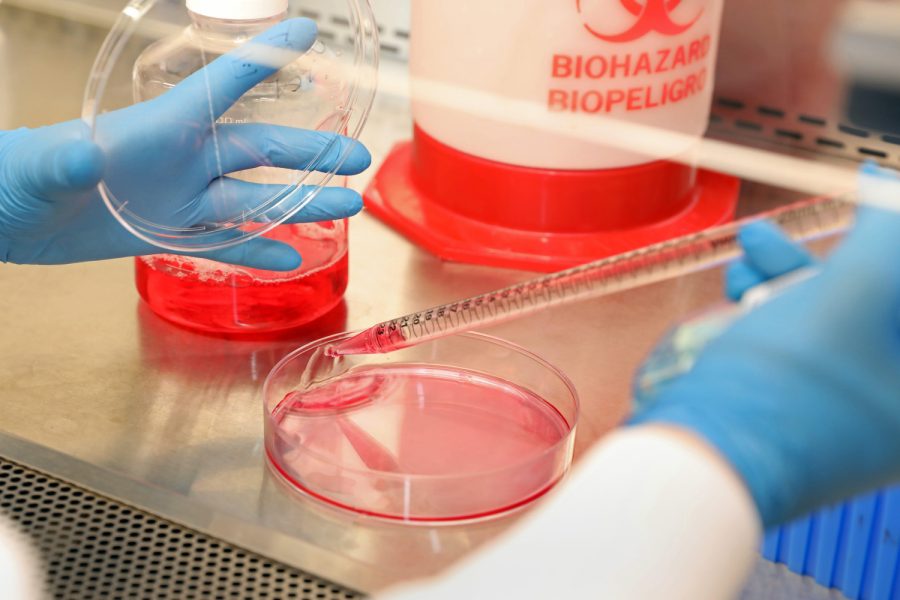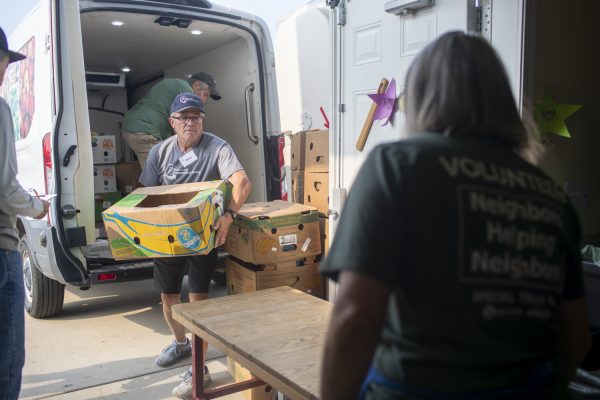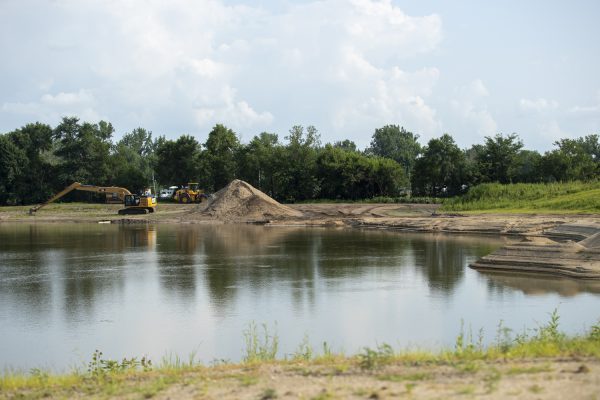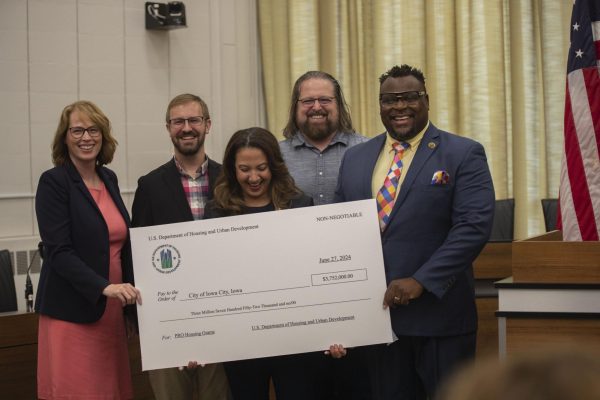UIHC participating in Regeneron clinical trial, testing treatment for COVID-19
Researchers are studying the effects of REGN-COV2, a treatment used to combat COVID-19. They expect it to be at least a few months before the public will have access to this treatment.
Kristen Pascal, a senior research and development specialist at Regeneron in Tarrytown, works in February with cells being used in an effort to create antibodies to treat people exposed to the novel coronavirus. The process involves injecting pseudo-coronavirus into genetically altered mice that produce human-like antibodies. [Gannett file photo]
November 3, 2020
The University of Iowa Hospitals and Clinics is participating in a trial using an antibody cocktail from Regeneron, the treatment that President Trump used after his COVID-19 diagnosis. The trial’s goal is to test the efficacy and safety of this COVID-19 treatment, and researchers say it will still be months before the general public would have access to the same treatment.
Regeneron Pharmaceuticals is an American biotechnology company based in New York. The company developed REGN-COV2, an antiviral cocktail for the treatment and prevention of COVID-19, Senior Manager of Corporate Communications for Regeneron Ella Campbell said.
REGN-COV2 was designed to combat COVID-19 and is currently being tested in late-stage clinical trials to treat and prevent the virus, Campbell said. She said the cocktail is made of two antibodies that were selected by Regeneron scientists after screening thousands of options.
Regeneron began enrolling people in trials across the U.S. in June, including one from the University of Iowa, Campbell said.
Director of Clinical Research Support Alejandro Comellas said UIHC researchers are screening participants for the trial. He said there are currently 10 patients enrolled in the UIHC trial, and the hope is to recruit 20 people total.
For patients to be considered for the trial, they have to have been diagnosed for COVID-19 within the past 72 hours, Comellas said. He said the researchers are providing the treatment to inpatients and outpatients who have the virus.
Regeneron trial recruitment coordinator Eric Garcia said they are accepting people who are symptomatic and asymptomatic. He said they are also recruiting people who have severe and mild symptoms.
After President Trump used the treatment, he called REGN-COV2 a “cure” for COVID-19. Comellas said this isn’t accurate, because it doesn’t destroy the virus.
“The concept of a cure is that we are able to eradicate a virus,” Comellas said. “The therapy is trying not to cure but avoid the virus from getting into the human cells, so they don’t cause worsening of the disease.”
Comellas said the REGN-COV2 antibodies bind to the COVID-19 spike to stop the virus from binding to human cells. If the virus isn’t blocked, it enters the cells of the infected and causes more significant damage to the body, he said.
RELATED: University of Iowa Hospitals and Clinics prepares for COVID-19 vaccine expected in November
The goal of the Regeneron treatment is to reduce the severity of the disease, hoping to prevent mortality, Comellas said.
REGN-COV2 is not available to the public outside of clinical trials, but anyone who meets the requirements can participate, Comellas said. He said they have to wait for approval from the Food and Drug Administration before it can be widely used.
“The reason why it’s not being used regularly is because we do not know how safe it is,” Comellas said. “We want to know how efficacious it is, making sure that the drug will make a difference.”
Since President Trump said the treatment was effective, many people want access to it. Comellas said it will be at least a few months until the general public will have access to this treatment.
Once a vaccine and the Regeneron treatments are available, people may use both to prevent COVID-19 infection, Campbell said.
“Antibody medicines can potentially serve as an important bridge until there is widespread vaccine availability for COVID-19,” Campbell said. “In addition, antibody medicines will continue to be useful for certain patients who don’t respond to or cannot take vaccines, such as the elderly or immuno-compromised, as well as those who need more rapid protection than vaccines provide.”
The current results of Regeneron trials around the country make health-care professionals hopeful that REGN-COV2 can treat and prevent COVID-19.
As one of the about 100 trial sites in the country, UIHC officials are excited to participate in this study and hopes they can see results that benefit patients, Garcia said.
“We’re very glad we’re able to participate in this study. We’re very lucky to have this at the university,” Garcia said. “We’re hopefully able to help out surrounding rural counties.”














